UiPath launched Autopilot, which melds generative AI, domain specific AI and its automation platform, to automate work via natural language. The launch adds to the automation platform push at UiPath that's well underway as the company aims to shed its image as a robotics process automation (RPA) company.
On the surface, UiPath Autopilot is YAGAIA (yet another generative AI announcement), but if you zoom out a bit you'll see what the vendor is trying to do. The short version: UiPath plays in process mining, RPA, task mining, automation across multiple domains and optimization and if you roll all of those things up you get a platform. That platform can create business value.
To UiPath CEO Rob Enslin the company's narrative is a spin on the platform always wins theme. Autopilot aims to further that narrative and position the company to be a more AI at work play. UiPath is betting that there will be process and automation focused generative UI use cases that will remain above the foundational model commoditization. Autopilot capabilities include generative AI experiences for developers to create workflows and build automations, target business users and enable faster testing of automation.
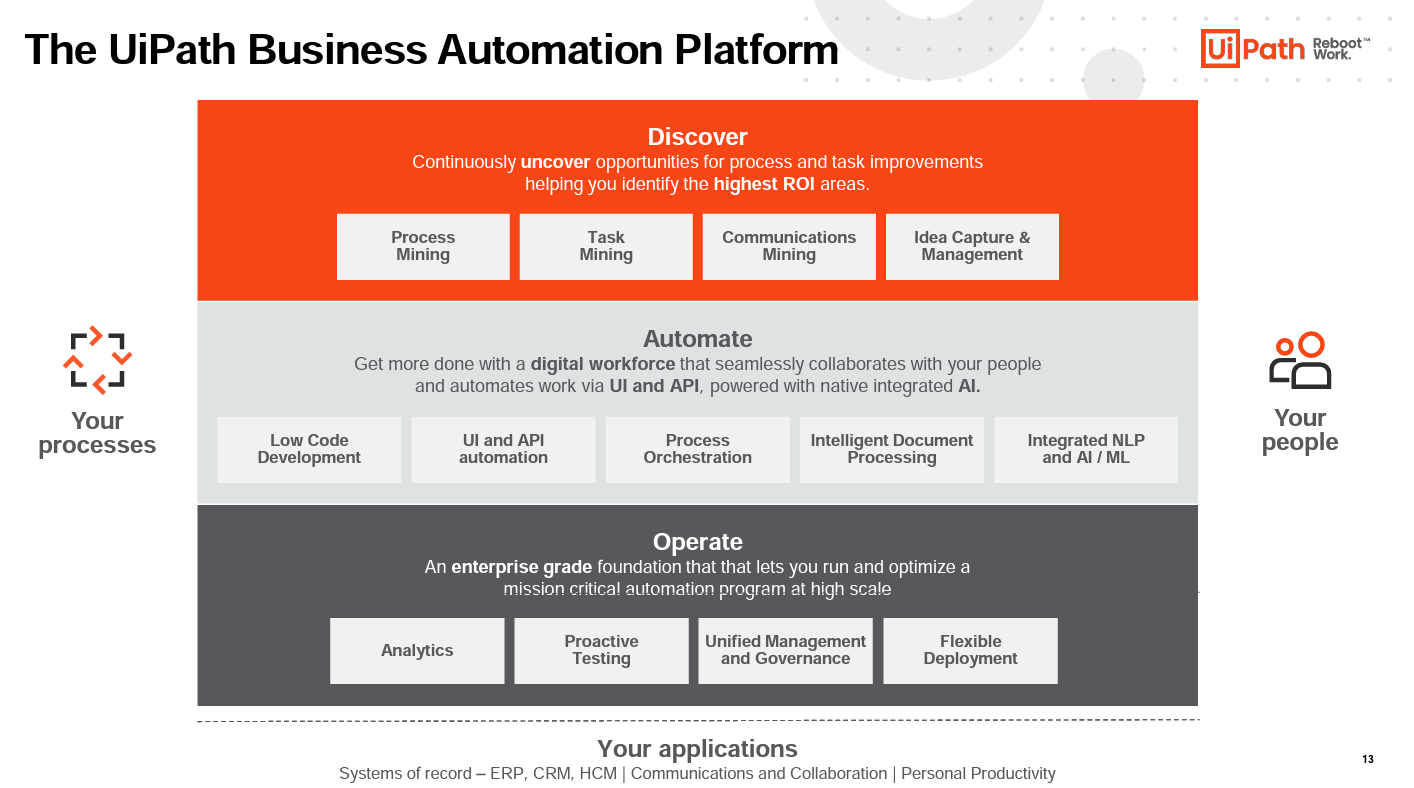
Customers cited in UiPath's press release noted that Autopilot within the company's automation platform can consolidate various copilots and systems, so they act in concert to follow business and process rules. For good measure, UiPath is adding its UiPath Trust Layer, which will govern data and interactions with generative AI and large language models.
As Constellation Research analyst Andy Thurai noted, UiPath wants to be between you and generative AI. Enslin added that UiPath isn't an RPA company but an AI at work company. In an interview with Diginomica's Jon Reed, Enslin noted UiPath is a business automation platform with a complete stack of tools to discover processes, automate them and then optimize from there.
UiPath is also working with ERP giants like SAP, which is a big partner, and has connectors to multiple enterprise systems. The company will also connect you to Amazon Bedrock and multiple generative AI connectors. Enslin wants UiPath to be more than the sum of its parts. Sure, UiPath process mining is running at Colgate, Verizon and Pfizer, but it's the expanded platform that's driving the benefits. The problem? Every vendor wants to be an automation platform.
Nevertheless, UiPath is well on its way to be seen as something bigger than RPA. Indeed, UiPath said it will start to sell and market an iPaaS offering in 2024 that will include the following:
- The company's library of connectors, templates and accelerators.
- Delivery options for Automaton Suite in multiple regions.
- Data mapping and transformaton capabilities.
- API design, creation and management tools.
These two slides from UiPath's recent Investor Day lay out the automation narrative, which is bigger than generative AI. For UiPath, generative AI provides semantic capabilities to the broader automation platform.
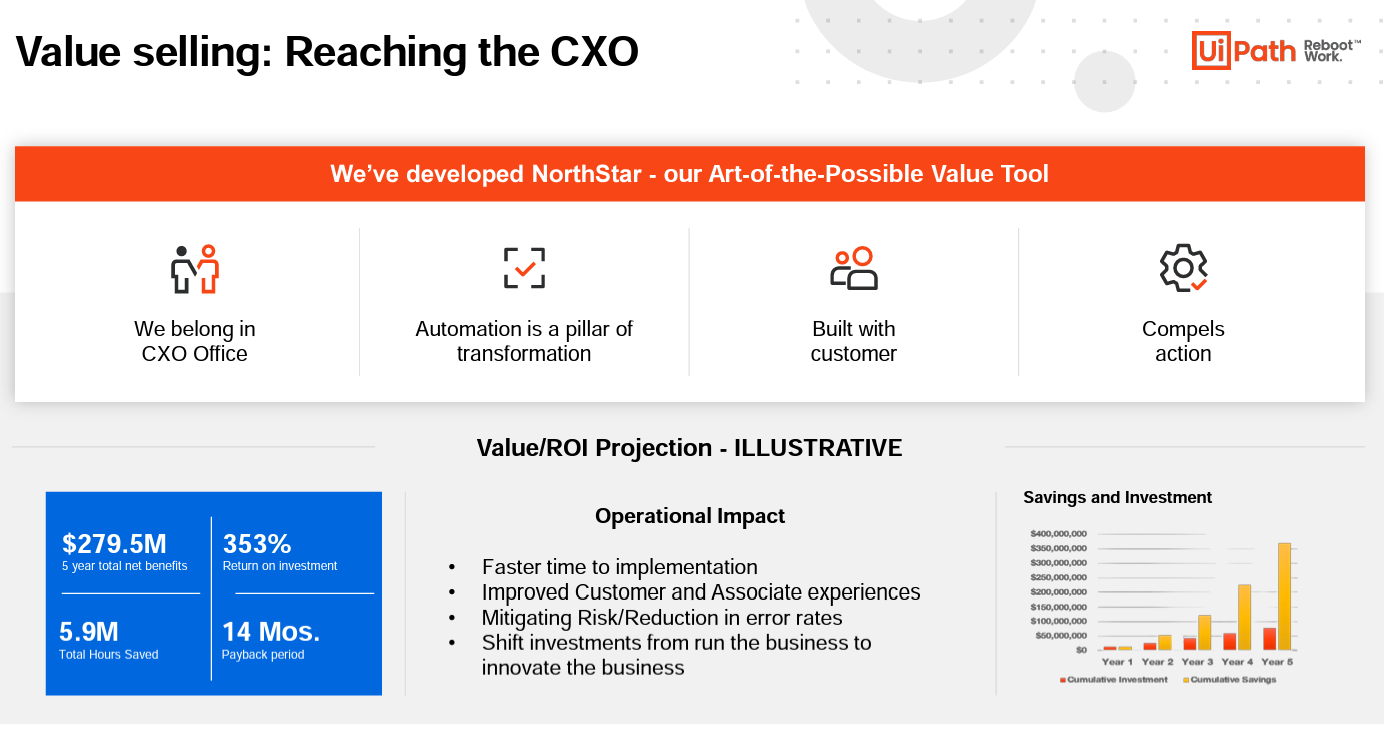
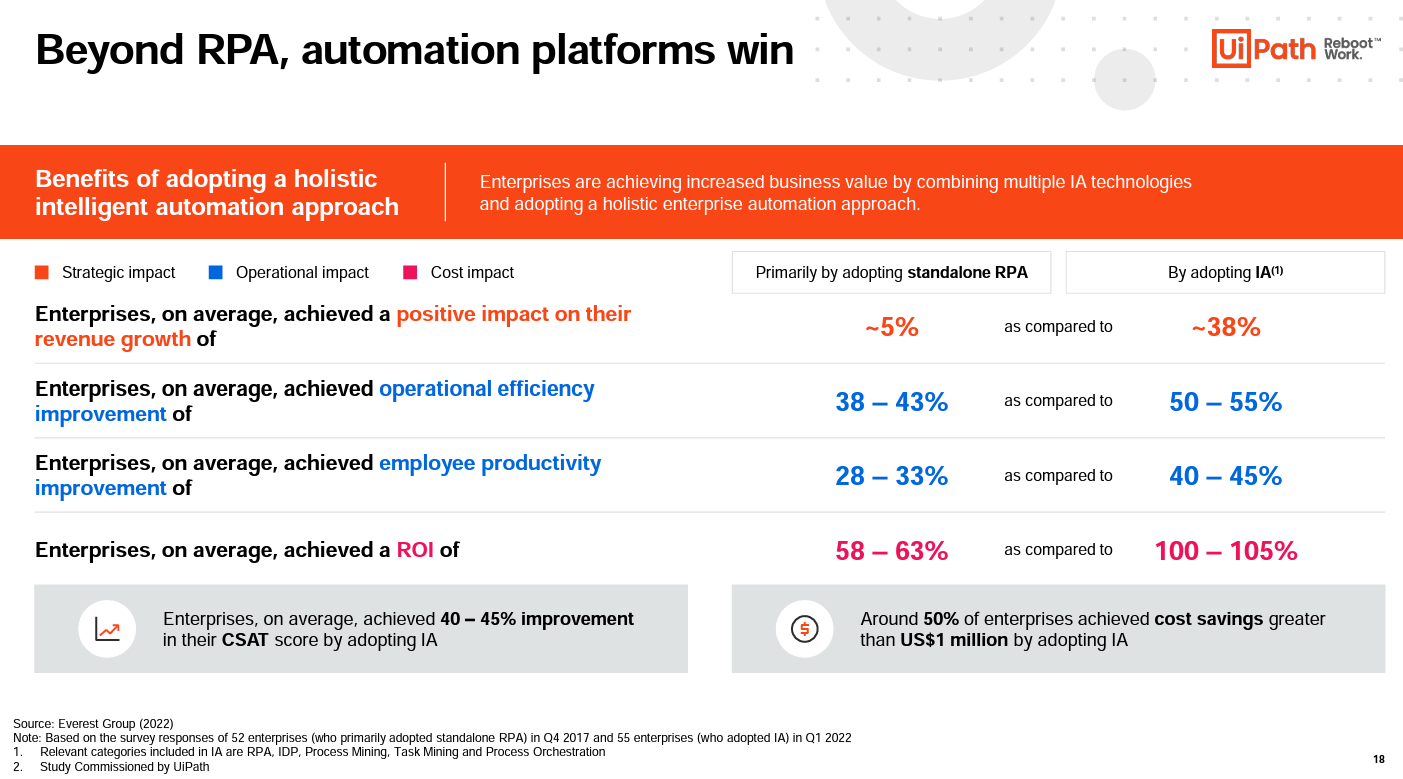
In the end, UiPath has to sell its narrative to CXOs. Don't count Enslin on this one given his sales history at Google Cloud and SAP. UiPath sells business outcomes and returns to CXOs. With process, task and document mining along with automation, UiPath can generate some heady returns for customers. The company prioritizes financial services, healthcare, manufacturing, and the public sector.
More:
- UiPath,Q2 better than expected, sees second half strength
- Constellation ShortList™ Robotic Process Automation
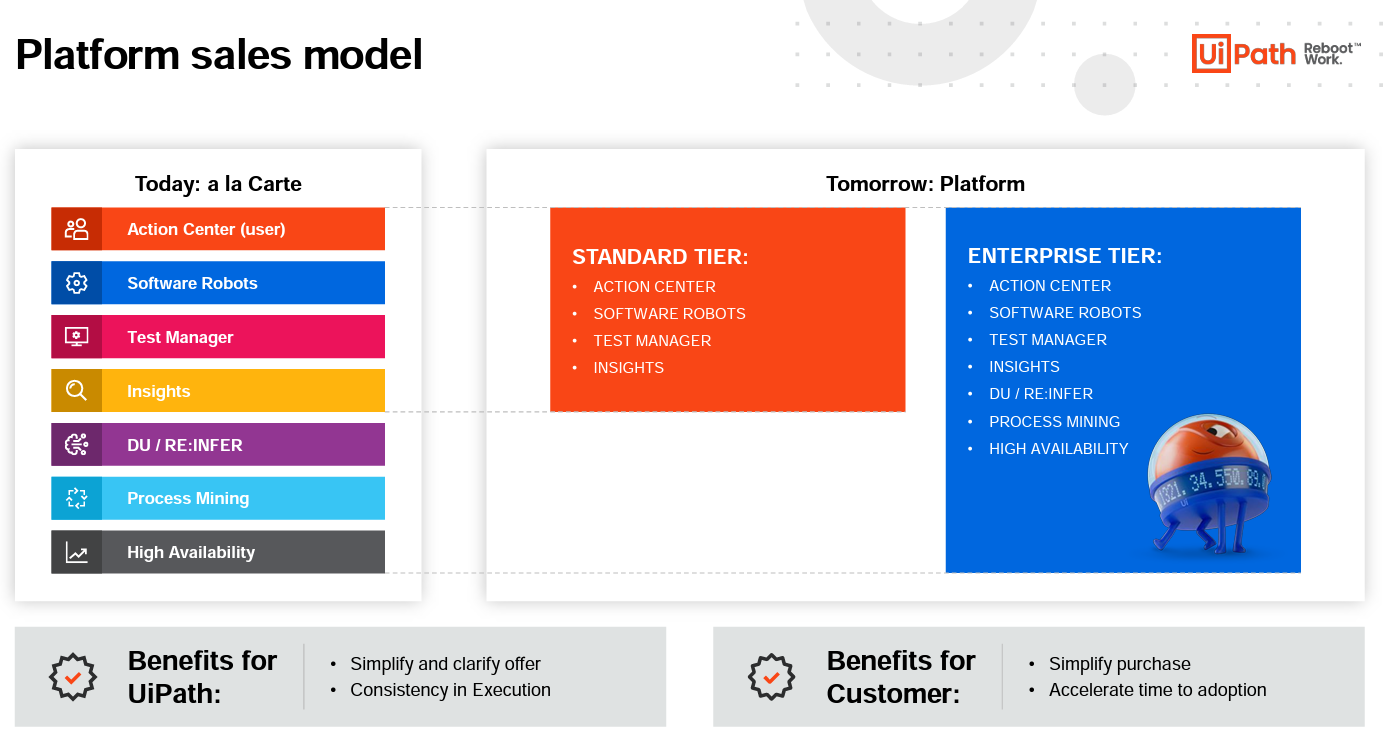
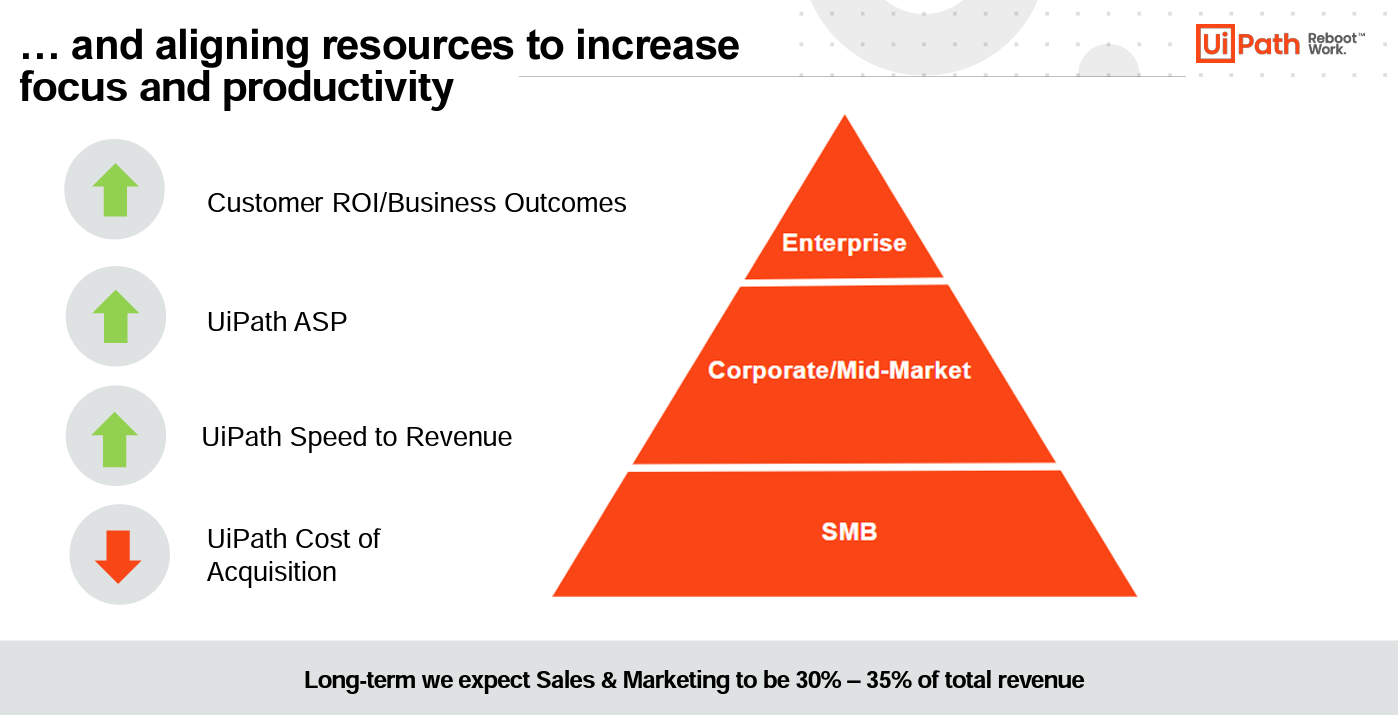
For its part, UiPath is planning to become more efficient, move customers to a cloud model and keep sales and marketing expenses at about 30% to 35% of revenue on a non-GAAP basis. And UiPath plans to leverage its SAP partnership and gain wallet share with its platform.
Add it up and UiPath's Autopilot launch isn't groundbreaking but spins the company's broader narrative forward. Now it just has to get buy-in from CXOs.


